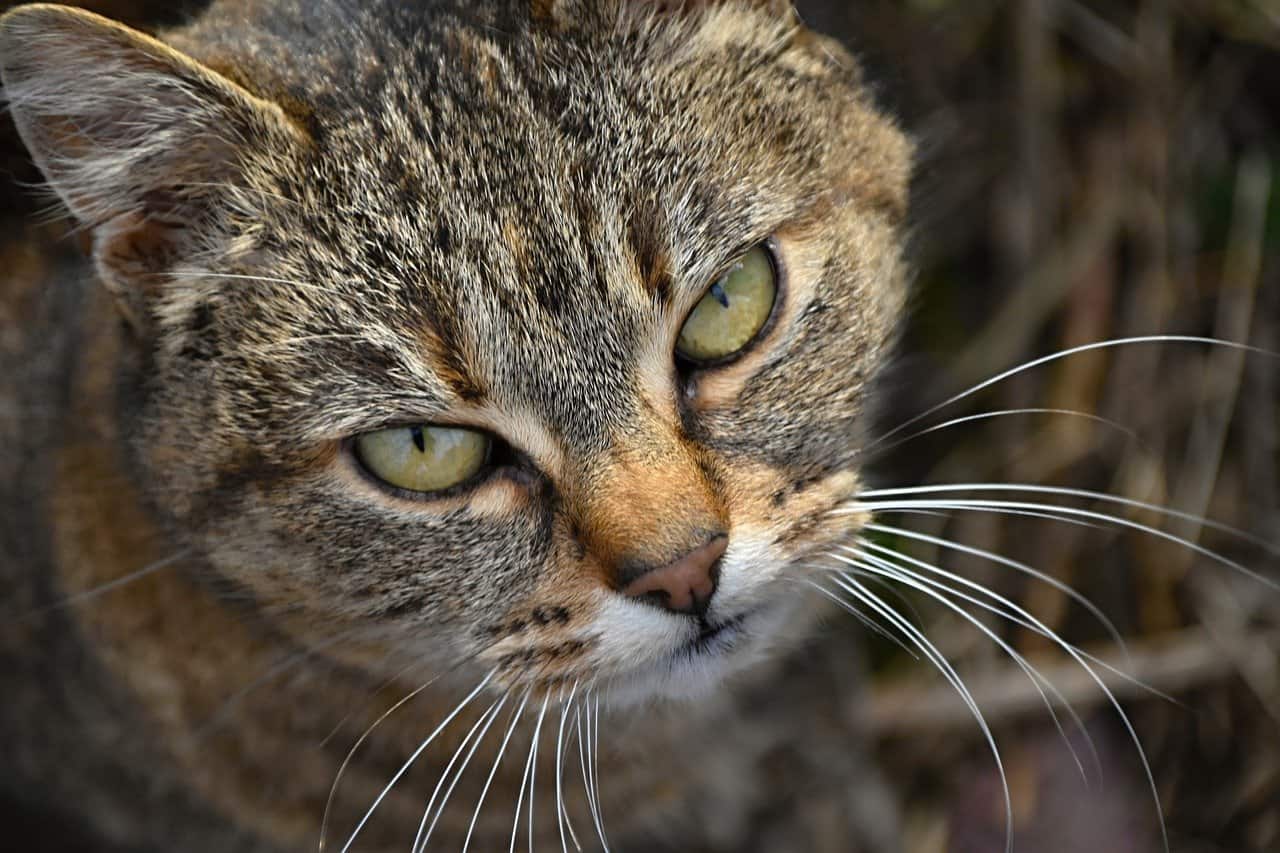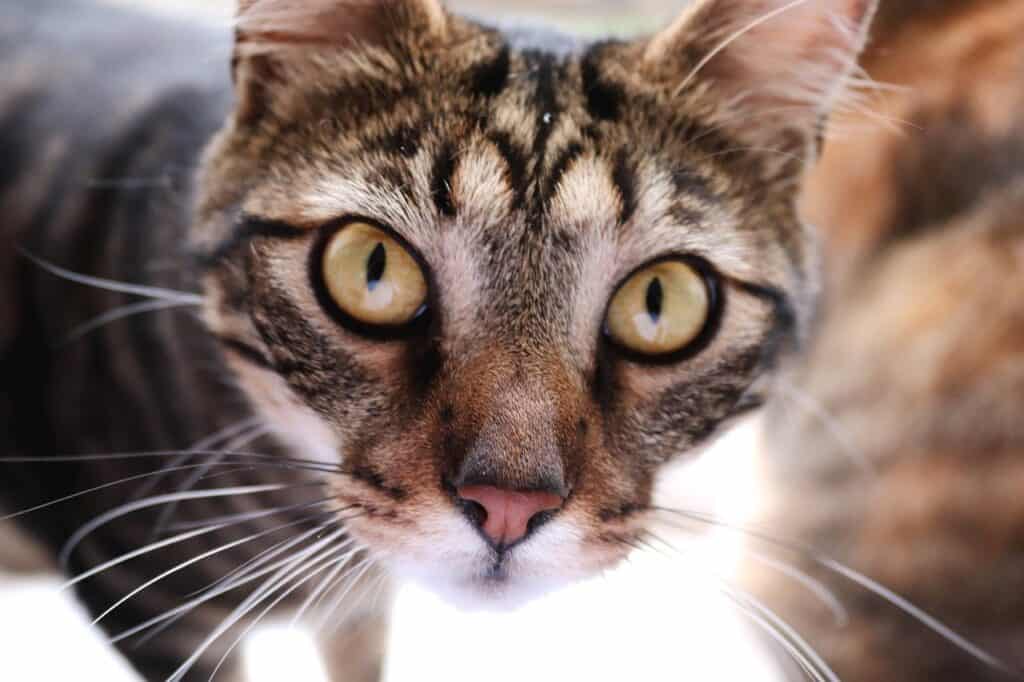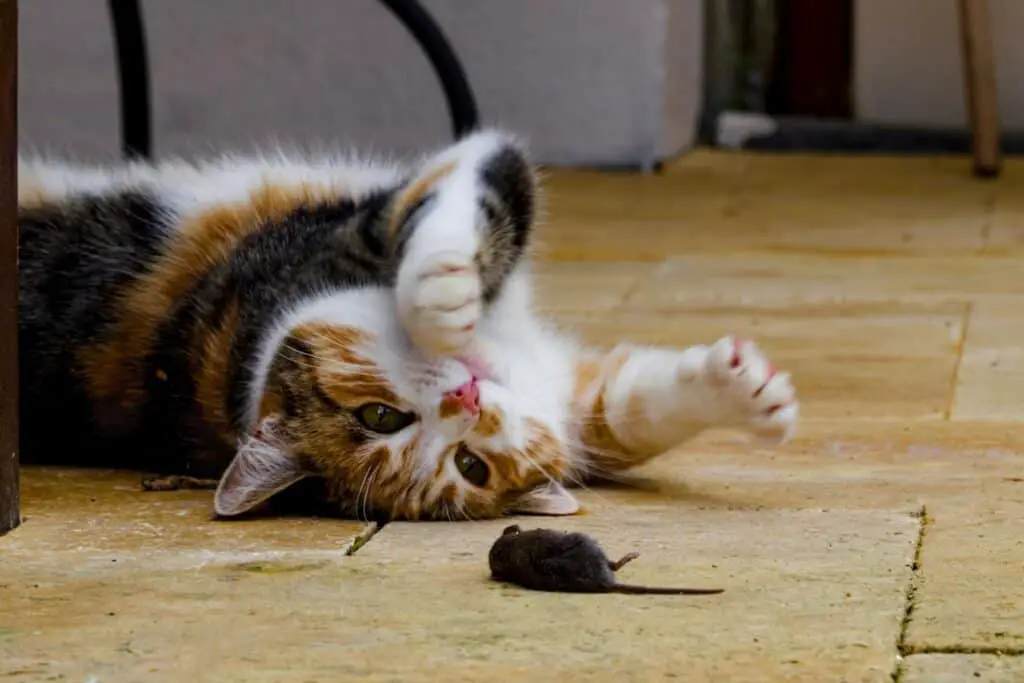As adorable as cats can be, they do have a bit of a reputation for being vindictive at times. This can lead many owners to wonder if their feline friends hold grudges.
Cats don’t hold grudges in the way that humans hold a grudge. This is because cats don’t experience the same range of emotions as humans. Secondly, their short-term memory span doesn’t allow them to remember wrongdoings long enough to get fixated on them. This avoids resentment, which is needed for a grudge.
I’ll get into a little more detail shortly, but first, it’s essential to establish an important factor in answering a question like this;
Cats are not humans.
They don’t experience the range of emotions that humans do, so their reactions to certain stimuli will be different.
Why Don’t Scientists Believe Cats Hold Grudges?
Recent studies have shown that cats can retain taught responses for at least 10 minutes, but they don’t have a great short-term memory.
That being said, memories are not a one-size-fits-all affair. To give an example, you might forget the password you used when you signed up for Netflix, but you probably won’t forget not to put your hand in a fire.
Similarly, you could easily forget the name of your partner’s colleague who was just introduced to you, but you probably won’t forget what your partner looks like even if you didn’t see them for a long time.
Ultimately, the concept of grudges—and most other emotional responses—boils down to memory. As an example, you might hold a grudge against someone you feel has embarrassed you or slighted in you some way.
The fresher those feelings of embarrassment are in your mind, the easier it is to hold a grudge. Some people are more prone to holding onto those feelings, which is why they can hold a grudge for long periods of time: years, even decades.
Others might quickly lose that sensation of embarrassment, and while they might still be annoyed at the person who embarrassed them, they would not feel strong enough about it to hold a grudge.
Because cats don’t experience the range of emotions that humans do, it is far less likely that they could become fixated on a particular feeling enough to hold onto the resentment needed for a true grudge.
Do Cats Remember Abuse?
This is where things can get a little fuzzy because while cats might not have a strong sense of embarrassment to hold on to, they do have a learn and response faculty, like any other animal with a survival instinct.
Think back to what we said about forgetting passwords while remembering not to stick your hand in a fire. The more significant the experience, the more likely it is to stick with you.
Cats may not harbor a deep-seated resentment towards you because you shooed them off the sofa that morning, but they will remember being kicked because of the pain that it involved.
Pain leaves a lasting impression. They may associate that pain with an action, or they may just associate it with you.
In those cases, they may lash out at you sometime later, which could be perceived as a grudge. The reality is that the cat has had a bad experience and is reacting accordingly.
And, I’m sure it doesn’t need saying, but don’t abuse your cats.
If we’re talking about extensive and ongoing animal abuse, both physically (causing pain) or mentally (not feeding, not cleaning the litterbox, bullying, etc.), cats will definitely remember this because we’re no longer talking about one-off events. The constant stress and recurrence of events turn it into long-term memory.
We call this a negative memory association, and it means that cats have learned to adjust their behavior because of repeated bad memories or bad experiences.
Cats will tend to keep away from people who abuse them in a prolonged way and are not easy to forget and forgive when this happens.
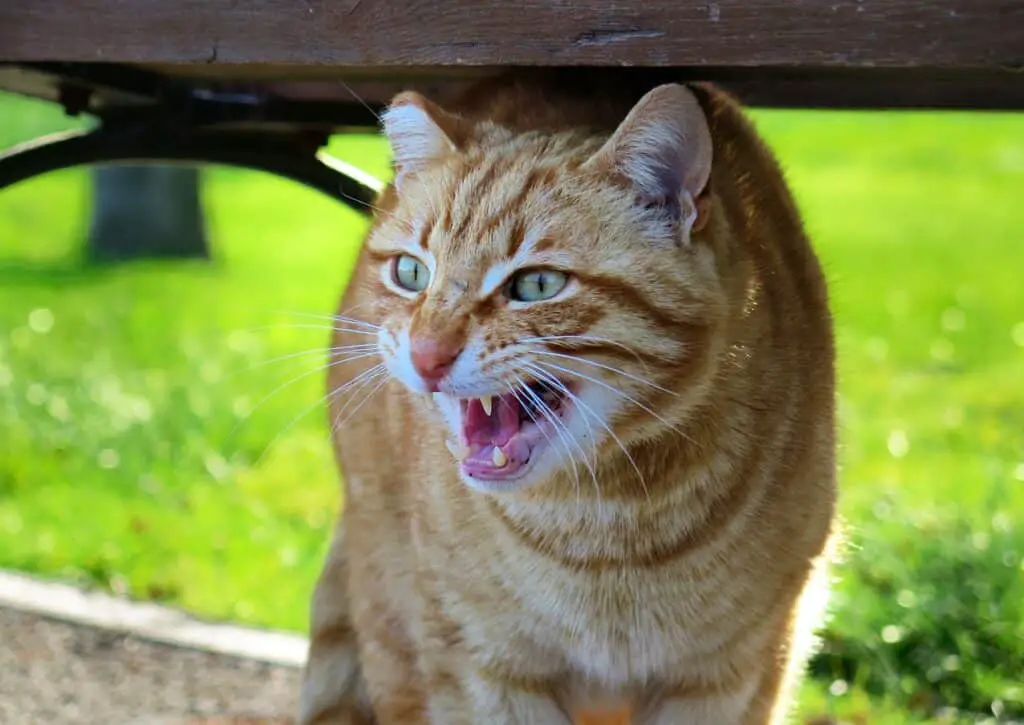
Do Cats Plot Revenge or do Things Out of Spite?
There is not currently any evidence to support the idea that cats plot or scheme to “get you back” after you have wronged them.
Hopefully, for most cat owners, reading this article, you will never do anything significant enough to your cat even to register a lasting response (like the aforementioned kick). It is far more likely that the response that you suspect was a plotted revenge tactic from your cat is just a coincidence and is simply caused by something else.
For example, cats tend to urinate, defecate, and spray when they are anxious and nervous. Sometimes in places where they are not supposed to be doing that. They also might “shun” you if you have been in contact with other animals.
These behaviors can sometimes feel like a grudge because what caused it may seem like the kind of thing that your cat would hold a grudge over. Worst-case scenario, a grudge-holding cat might sulk because you have been petting other animals.
While it does seem to make sense, again, there is no evidence to support the theory that cats harboring a deep-seated resentment, and the behaviors can be explained by typical cat activity.
For example, in the case of shunning you when you have petted other animals, cats are very territorial and do not like the smell of other animals in their territory. You will often find that a wash and a change of clothes will end the silent treatment.
How to Make Amends With Your Cat
As complex as cats are, they are really very simple creatures compared to humans. Making amends with them is often a simple affair. Of course, it can also be almost impossible in some cases, and it really depends on what the problem is.
If your cat has undergone a severe incident—such as the aforementioned abuse—you may never be able to shake the specter of that incident from their mind.
For something less severe—perhaps an accidental standing on the tail—you’ll have to give your cat some time to calm down. When they’re ready, a few treats and as much petting and together time as they will allow should begin to rebuild those bridges.
Believe it or not, I have some personal experience when it comes to apologizing to my cat, Max. For some insider tricks on how to successfully make your amends with your cat, have a look at my post here.
For minor incidents, such as being snubbed because you’ve been cuddling other pets, you will often find a good handwashing will do the trick. When there is nothing that reminds your cat of the minor unpleasant experience, they will quickly forget about it.
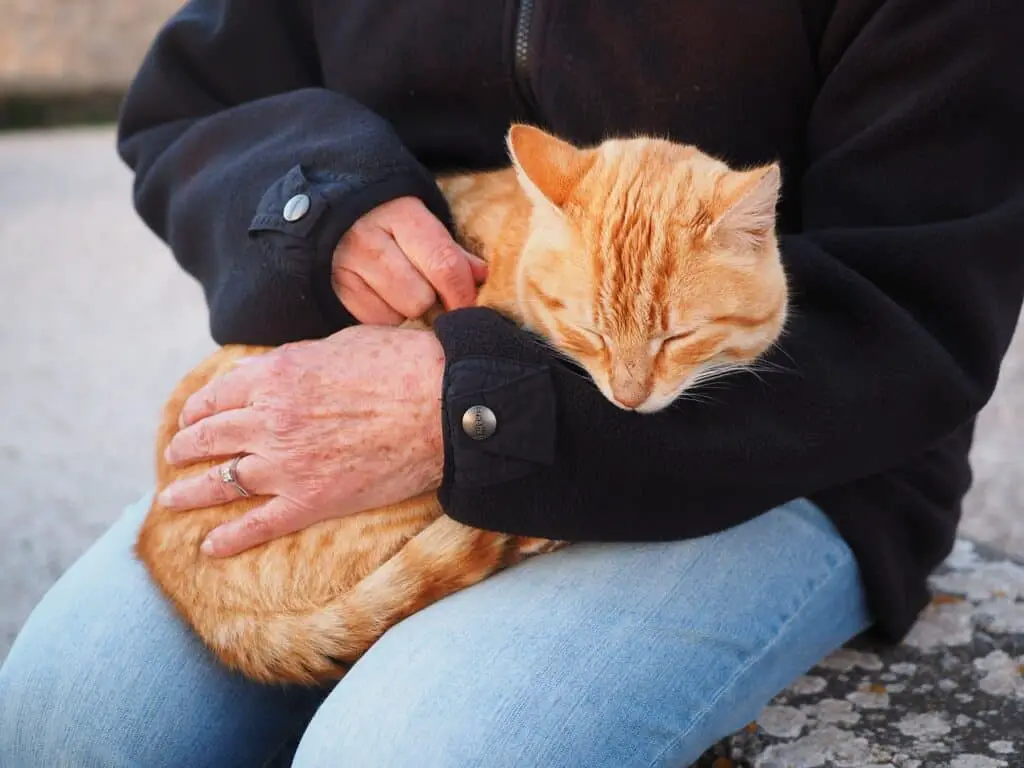
Do Cats Forgive?
The concept of forgiving is not necessarily appropriate for the way cats react. In the event of an incident, like standing on the cat’s tail, they can come to see you as not a threat again when sufficient time passes without it happening. However, it is not a matter of forgiveness so much as it is a matter of threat assessment.
Your cat will have experienced the bad events and initially deemed you a threat. Over time, it can re-assess that conclusion after sufficient time has gone by or after positive reinforcement that persuades her otherwise.
From experience, it significantly helps if there are kitty treats and cuddles in the mix and you are in a comforting environment. This way, your cat will (hopefully) come associate you more with those nice things than the one negative experience it had.
In any case, if you have a harmonious relationship with your cat, your cat will easily forgive you for some small wrongdoings because there is trust between you and her.
How Does Cat Behavior Change After a Negative Experience?
While your feline friend might not have the vast and complex range of emotion that you do, they do still have a range, and that range includes anxiety and stress.
Both of these things can be experienced by your cat after a negative experience, which can, in turn, lead to changes in their behavior.
Eating Habits
Some signs of stress include eating less or stopping eating altogether. However, it should be noted that changes in eating habits can also be a symptom of several other problems. If you notice your cat eating differently—especially if accompanied by weight change or vomiting—then a vet visit is probably best.
Personality
Like people, cats have their own personalities, and they can be wildly different from cat to cat. That being said, if your cat starts behaving very differently compared to how it usually behaves, it could be a sign of a problem. An example of this is a cat who is usually very playful and not interested in playing anymore.
Signs of Injury
If the negative experience in question had some kind of impact on their body, it could have caused injury to your cat. Small animals like cats are not prone to showing weakness, and even they are in a lot of pain, so you will have to be attuned to the subtle differences in their behavior.
Changes in their bathroom usage are a warning sign, especially if there is any sign of blood in the litter tray or they have not been urinating.
Sleeping more than usual for that particular cat is also cause for some concern. The most obvious thing you might spot would be any kind of injury to a limb or joint. If your cat seems to struggle to get around compared to before the negative experience, it may have an injury that it is trying to hide.
Final Thoughts
As much as we would like to think our cats are complicated, emotional beings who love us dearly, much of the science seems to point towards them being purely coincidental reactions to external stimuli.
In much the same way that a guinea pig can learn the sound of the food packet, and a dog learns that “puppy eyes” can get it out of trouble, it is not really a conscious emotional reaction, but an unconscious learned response.
That being said, there is not a huge amount of research on how cats think, and it is entirely possible that scientists come up with amazing new insights into the cat psyche in the years to come. I’ll keep an eye on it for sure.
What’s your experience? Did you even have to apologize to your cat for something you did? Let us know in the comments below.

